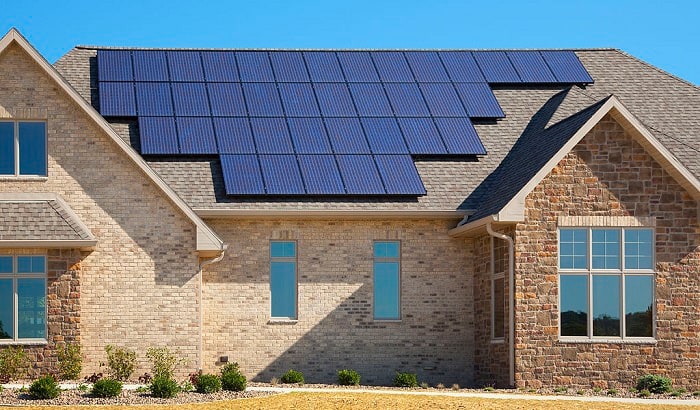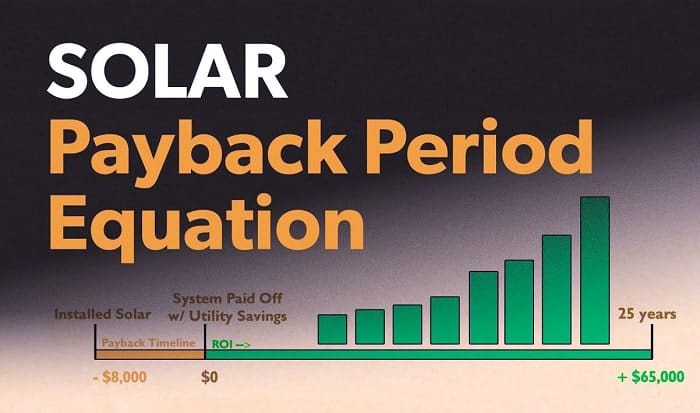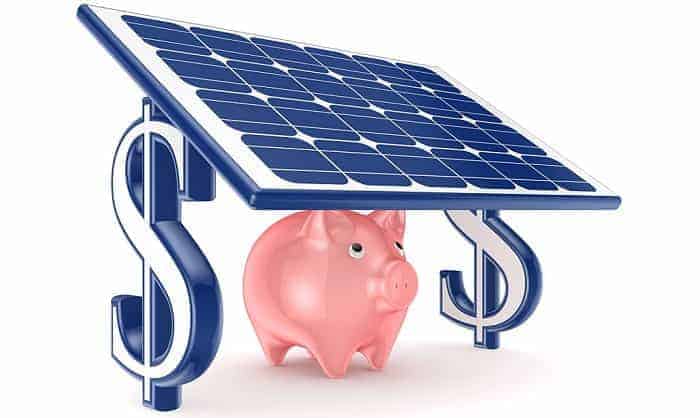Ever wondered “do solar panels pay off” or “how long does it take for solar panels to pay for themselves?” Many consumers think of switching to solar energy because it is not only eco-friendly but also a cost-effective investment. Aside from significantly lowering your electricity expenses, solar panels are a long-term investment.
Installing solar panels is advantageous for thousands of homeowners and consumers. Indeed, you won’t waste a single cent because solar panels pay for themselves. But, how do you assess the value and the return on investment of solar power for your home?
Continue exploring this post and discover what solar panel payback is. Once you get familiar with the fundamentals, you’ll quickly recognize what your investment is worth.
Table of Contents
The Costs of Solar Power for Your Home
There’s no denying that solar power is capital intensive. The primary expense of owning a solar panel system comes upfront when purchasing the equipment. The truth is, many consumers hesitate to go solar because of the expensive initial cost.
The Equipment Required for the Installation Process Consists of
Metering Equipment
This is necessary if you’d like to know how much power is generated.
Inverter
This is for turning the DC generated by the panel into the AC utilized by home appliances.
There’re also housing components along with wiring gear and cables. Furthermore, many homeowners look into battery storage and the installation labor cost.
There are other additional expenses linked with operating and maintaining a photovoltaic solar array. Besides cleaning the solar panels periodically, if installed, batteries and inverters also need replacement after several years of usage.
The mentioned expenses are comparatively straightforward — usually, a solar installation firm can quote a price for these for you. On the other hand, figuring out the subsidies available from your local utility or government can be one of the challenges you’ll need to face.
Understanding Solar Payback Period
Like other forms of ventures, the payback period for your solar assesses how long solar panels take to pay for themselves. It refers to the amount of time it would take you to fully pay off your solar power system through reducing your electricity bills.
How is Your Solar Panel Payback Period Computed
To compute your solar panel payback period, you’ll need to figure out a couple of factors. First, determine the net of any upfront costs (the amount you’ll pay for your solar system), tax incentives, and the amount you’ll save on your electric bill yearly.
The Amount You’ll Pay for Your Solar System
When computing your solar payback period, you’ll need to calculate the amount you’ll pay for a solar system. The expense you pay for your solar panel system relies on the equipment you choose as well as the size of the system.
Tax incentives
Note that it is essential to look into tax credits, solar incentives, and rebates you are qualified for. Likewise, it would be best if you also consider the schedule of those incentives. Examine if you’re going to receive the incentives earlier, in a year, or over 10 years.
The Amount You’ll Save with Solar Energy Annually
The next step in computing your payback period for your solar is to assess the amount you’ll save with solar power each year. Fundamentally, the amount you save is mainly a function of how much energy you consume, how much energy your solar panels will generate, and the amount you pay for energy.
A solar ROI calculator can compute your solar payback period quickly. But, if you want to calculate it by yourself, just determine the listed costs above and use our formula.
To sum up, the formula goes like this:
Total Costs divided by Annual Savings = Payback Period (in years)
Note:
Total Costs = Cost of Solar System – Upfront Incentives
Annual Savings = Savings on Electricity + Any Other Incentives
How to Tell if Your Payback Period is Reasonable?
For instance, if your system comes with a payback period of ten years, this means that the solar panels will help you set aside enough on your electric bills to cover the expense you paid for them in ten years.
So, after the tenth year, it’s all good. This is the period when you’ll start enjoying considerable savings from solar energy; you will see the big difference compared to using non-renewable power sources.
Solar panels generally last for twenty-five to thirty years.
Hence, if it takes twelve and a half years or less for the solar panel system to pay for itself, we can safely say that your payback period is reasonable.
Indeed, solar panels do not degrade quickly; for a fact, they can maintain 82.47% performance after twenty-five years of warranty.
Apart from the longevity of solar panel systems, the Internal Rate of Return is vital when examining whether a payback period is a worthwhile investment. IRR is utilized to compute the practicality of a potential investment.
The Benefits of Solar to Your Home
Save Money
The most significant advantage of going solar is the likelihood of having considerable savings.
Shifting to solar power reduces your reliance on your utility since the solar panels enable you to produce your own electricity. Due to this, you can eliminate headache-causing and steep electric bills.
Energy Independence through Solar Energy & Storage
Independence and liberty from your utility are the great perks of solar power. When you add battery backup to your system, this offers you more independence because you’re not merely producing your own electricity but also storing it for later use.
If your system is not grid-tied and you utilize solar energy plus storage, you’ll be worry-free because your home will remain powered even during emergencies.
Solar Power Boosts the Value of Your Home
A purchased solar panel system does not only help you save more dollars on your electric bill. It also significantly adds value if you decide to sell your property in the future.
Little to No Maintenance
Many of us often mistakenly think that solar panel systems are high maintenance. In truth, they require little to no maintenance. Just be sure that a licensed professional installed it for you, and you’ll have peace of mind.
Help Save the Planet
Solar energy is eco-friendly, so it does a great job of tremendously reducing your carbon footprint on the environment. Shifting to solar power is beneficial not only to your pocket but also for minimizing the pollution in the atmosphere.
With solar panel systems, you won’t need to think about hazardous greenhouse gas emissions that are dangerous for health and our planet.
Final Thoughts
How long does it take for solar panels to pay for themselves? Knowing the answer can serve as the key to determining if installing a solar panel system is the right decision for your home. A home solar panel installation saves you the trouble of increasing electric bills and guarantees energy independence.
As mentioned, the total expense of your system is its final price minus the incentives. It is with this amount and your yearly savings that you’ll determine what your solar payback period is. Quality and maintenance costs also affect the self-pay of solar panels. So I recommend finding the right brands and types of solar panels. such as foldable solar panels, 100-watt solar panels, and marine solar panels. Hopefully, this guide can help you determine if your solar panel system truly pays off.

I am Kathleen Miller, staff writer and reviewer of the Avasolar team. Working with the team has been a pleasure for me so far, I hope to bring readers useful information by creating detailed and easy-to-follow contents.



